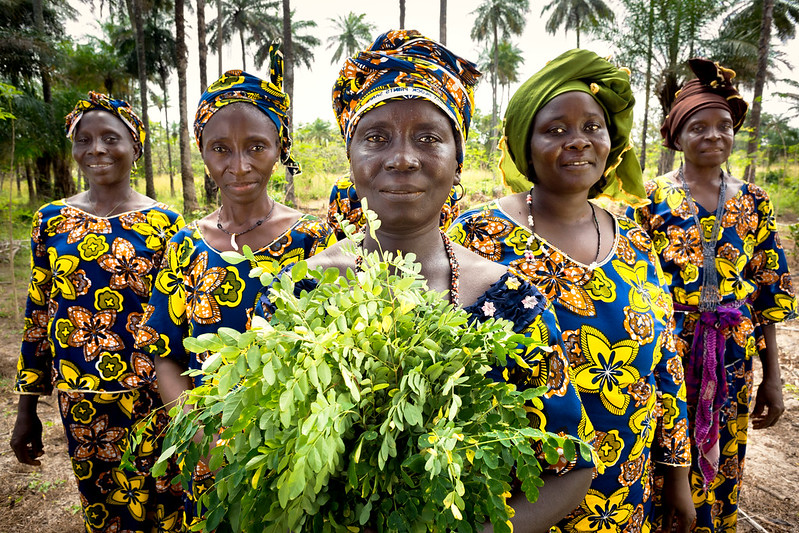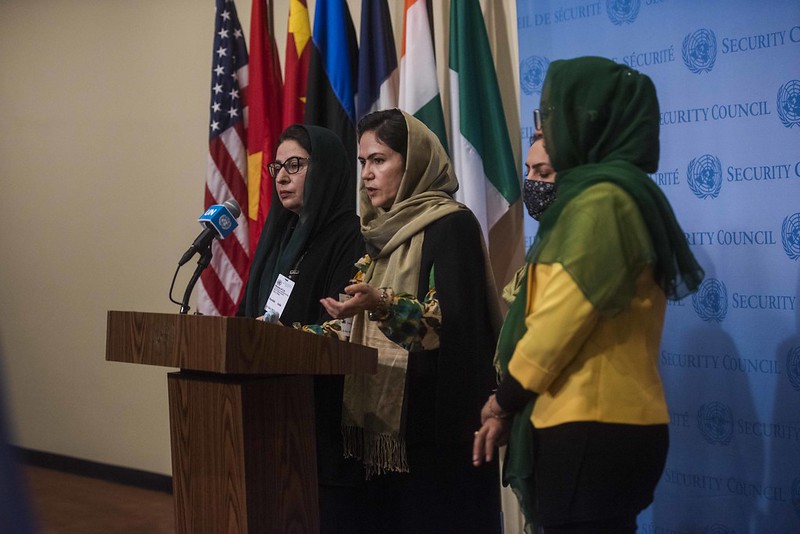Why it matters
The inclusion, support and empowerment of women, civil society, youth, Indigenous peoples, people with disabilities and the most vulnerable and marginalized communities is a fundamental aspect for a just and effective global strategy to address the climate crisis and the other interrelated challenges, from poverty eradication and food security, to social and racial justice, and gender equality.
The global climate movement has been instrumental to enable and enhance both government and non-state actors’ climate ambition and action. Climate activists have forced leaders to acknowledge the gravity of the climate crisis, providing a base and a voice for political leadership and climate legislation. Additionally, these actors play a crucial role in driving ambition to achieve system transformation towards a 1.5C climate resilient world and to ensure accountability among non-state actors.
These events have demonstrated the power of the climate movement in reframing climate ambition and driving systems change; a lesson that is not lost on us, and shouldn’t be by anyone.
The Climate Champions team is committed to a multi-stakeholder approach in all our activities. We provide space for youth and civil society consultations, partnerships and participation in all its work streams and campaigns and aim to constantly work to embrace and stimulate diversity and inclusiveness. The Climate Champions team is committed to ensure meaningful participation of youth, women, Indigenous people, people with disabilities and civil society, in particular from the Global South in their activities.
To learn more about the work of the Climate Champions team with these constituencies, please reach out to:
Lina Dabbagh, CSO & Policy Engagement lead (linadabbagh@climatechampions.team)
Shivi Dwivedi, Youth & Gender Engagement Lead (shividwivedi@climatechampions.team)
There is ample evidence to show how climate amplifies existing gender inequalities and poses unique threats to the livelihoods, health, and safety of women and girls. At the same time, women are often frontline responders to climate stresses and disasters and leaders in finding solutions and building climate ambition. Our collective efforts should both explore these impacts of the crisis, as well as showcase how women can drive greater ambition in climate, building on a nascent but growing base of evidence.
Some stats to support this:
— Companies with more female board directors are 21 percent more likely to have set emission reduction targets. (Source: World Economic Forum, from UNEP and World Bank)
— Investing in gender equality could reduce global greenhouse gas emissions by up to 15% by 2050. (Source: United Nations Environment Programme (UNEP) and the World Bank)
— Increasing women’s representation in national parliaments leads to the adoption of more stringent climate change policies, resulting in lower emissions (IPU)
— 70 percent of women believe climate change is a serious threat, compared to only 58 percent of men. (Source: Pew Research Centre)
— 62 percent of women have taken action to reduce their climate footprint, compared to 49% of men. (Source: Pew Research Centre)
If 16 percent of secondary school students around the world in middle and high income countries studied climate change, it would result in cutting almost 19 gigatons of CO2 by 2050 (Columbia Climate School).
To ensure gender is integral to progress on tackling climate change, we must accelerate efforts to empower women and girls in climate action, and deliver gender-responsive outcomes at COP28.
Our priorities ahead of COP28 include focusing on the climate and nature nexus, and enhancing inclusivity, with a particular focus on empowering women and girls in climate action, and delivering gender-responsive outcomes at COP28.
— Amplifying women-led climate solutions and highlighting the strong role women and girls play as climate leaders and actors. We are calling on governments, financial institutions, philanthropy and other stakeholders to increase finance flows to women and girls in the regions most impacted by climate change. Investing in gender equality could reduce global greenhouse gas emissions by up to 15 percent by 2050*. This tells us that investing in gender-responsive transformative climate initiatives, which are locally-driven solutions keeping gender equality and women’s rights at their core – is not just the right thing to do, but also the smart thing to do.
— Delivering gender-responsive climate action. We need to ensure that when the international community mobilises towards a just transition, it is aiming for a “gender-just” transition – one that considers and prioritises the everyday lived experience and leadership of women. The outcomes at COP28 must reflect the specific needs and opportunities for women in climate action
— Increasing representation and showcasing the differential experiences of women affected by climate change, particularly from frontline communities.
— Finance must be underpinned by better quality, gender-disaggregated data – this is crucial to enable informed decision making on finance and resource allocation.
To enable a gender-just transition, we must have gender-responsive finance. To ensure we have gender-responsive finance, we need the right data. COP28 is a unique opportunity to ensure we have the right building blocks for long-lasting, women’s economic empowerment

H.E. Razan Al Mubarak unveils steps supporting women’s leadership in climate diplomacy
Razan Al Mubarak, the UN Climate Change High-Level Champion for COP28, announces support to advance women’s representation and gender parity at the upcoming climate summit
READ MORECOP28’s gender agenda: Spotlighting gender-responsive strategies for accelerated climate action
Exploring at COP28 the dual aspects of gender and climate change: the challenges women face and their critical role in accelerating action.
READ MOREGlobal Conference on gender-environment data set to spur inclusive climate action at COP28
Organized by COP28, UN Women, UNFCCC, Women’s Environment & Development Organization, and the International Union for Conservation of Nature, the conference seeks to address the gender-environment nexus, focusing on how different genders are uniquely affected by climate change and how this understanding can inform more effective and inclusive climate policies.
READ MOREAfrica Climate Week: Putting gender considerations front and centre of climate finance
The 2022 edition of Africa Climate Week commenced on Monday 29 August, and will run until Friday 2 September in Libreville, Gabon.
READ MORE
The Women’s Earth and Climate Action Network (WECAN) International
The Women’s Earth and Climate Action Network (WECAN) International is a solutions-based, multi-faceted organization established to engage women worldwide in policy advocacy, on-the-ground projects, trainings, and movement building for global climate justice.
READ MORE
WEDO
As a global women’s advocacy organization, WEDO envisions a just world that promotes and protects human rights, gender equality and the integrity of the environment.
READ MOREIn our commitment to advancing climate action and sustainability, we are dedicated to promoting inclusivity and driving climate action with a strong emphasis on the engagement of women, Indigenous Peoples, and youth. We recognize the profound importance of incorporating the voices and wisdom of indigenous peoples.
Recognizing that:
— Indigenous Peoples comprise less than 5 percent of the world population, but are responsible for protecting more than 80 percent of its biodiversity;
— Less than percent of funding reaches Indigenous Peoples and Local Communities to secure tenure rights and manage forests in tropical countries;
— From all the funds allocated in the last 10 years to support IPLC’s tenure rights and forest management, only 17 percent actually included an IPLC organization, which represents 0.13 percent of all the aid designated to climate change;
— From the COP26 IPLC Forest Tenure Pledge of US$1.7 billion of financing, from 2021 to 2025, only 7 percent of the funds delivered so far to fulfil this pledge actually went directly to IPLC groups.
Our priorities in the road to COP28 and beyond include spearheading joint campaigns with Indigenous Peoples Organizations to secure direct access to finance for nature stewardship, ensuring the visibility of Indigenous Peoples in decision making, and championing the Local Communities and Indigenous Peoples Platform (LCIPP).
This is the first time that we have an Indigenous Peoples Day, which was directly requested by the Indigenous Peoples Caucus.
To platform the demand from Indigenous Peoples to secure direct access to climate finance, we collected and published testimonies from Indigenous Peoples and Indigenous Peoples-led fund managers on how their communities have benefited from having direct access to finance – and the work they lead on climate solutions.
With this, we are looking to galvanize commitments from non-state actors, governments, and philanthropies to directly fund Indigenous Peoples-led organizations and their financing mechanisms, helping to reshape the way climate finance is being currently implemented and hoping to contribute to address the issue of climate finance not reaching out to on the ground communities and initiatives.
— For the past two years, in support of the Nature workstream of the Marrakesh Partnership, the Climate Champions Team has engaged with the finance sector to ensure leading financial institutions set a trailblazing path to ensure portfolios are tackling commodity-driven deforestation and working to protect the rights of Indigenous Peoples.
— This year, we have launched the Nature-Positive for Climate Action Call to Action, that further addresses drivers of land conversion and advances the rights of Indigenous Peoples. It does this by increasing investment of Nature-based Solutions with direct access; and pushing for accountability of financial institutions and corporations.
— There are already corporations and financial institutions, as well as subnational authorities, that are already stepping up – but we need many more to follow suit and uphold Indigenous People’s Rights.
— We are eager to engage Indigenous Organizations in the signature Campaigns of the High-level Champions, Race to Zero, the Sharm El Sheikh Adaptation Agenda and the Race to Resilience;
— We are engaging with Philanthropy to change the narrative within the funder community and to flag the need for greater collaboration and support from funders on the topic of direct access to finance for Indigenous Peoples.
With initiatives like this we hope that Indigenous Peoples and Local Communities to be fully embedded in the Climate Champions agenda and process.
Amazon’s least-deforested areas are due to ‘vital role’ of Indigenous peoples
New study reveals “vital role” of Indigenous territories and protected areas in forest conservation in the Amazon.
READ MOREChampioning nature and Indigenous wisdom: Latin American and Caribbean Climate Week sets the stage for COP28
Latin American and Caribbean Climate Week (LACCW) opens in Panama City today aiming to galvanize the LAC community around a common vision of what it takes to transition to a net zero emissions, nature-positive and resilient world.
READ MOREACTO Summit: Protecting the Earth’s lungs
Leaders and stakeholders from various domains will meet this week at the Amazon Cooperation Treaty Organisation (ACTO) Summit to address the pressing and interconnected issues of climate change, biodiversity, and Indigenous rights.
READ MOREEvelyn Acham: We must uproot the systems destroying our home
“Africa for years has been experiencing the impacts of climate change and these are becoming more and more catastrophic. It has been our past, it is our present and might become our future if we don’t Act Now.” Ugandan Climate Activist, Evelyn Acham’s submission to the Our World in Your Hands project.
READ MORE“We are destroying the planet by destroying the people that protect it”
Indigenous rights activist and lawyer, Cindy Kobei discusses custodianship, the law, deepening equalities caused by the climate crisis, and the need to rekindle our connection with the natural world.
READ MORE10 things we learnt from Day 1 of Latin America and Caribbean Climate Week
Latin America and Caribbean Climate Week (LAC CW) kicked off with a resounding call to action, setting the stage for a week of lively discussions and collaborative efforts to accelerate the region’s race to a net zero emissions, nature-positive and resilient future. With the Climate Champions Team on the ground for the week, here are our key takeaways.
READ MOREThe global youth movement has been instrumental in helping to shift the overtone window on both government and non-state actor climate ambition. Over the last few years there has been a growing recognition amidst the parties on the power of youth inclusion within the COP process which has led to historic mentions about children and youth as key stakeholders in the cover decision texts.
Today, the global youth movement stands at the forefront of climate action. Their engagement, backed by knowledge and cutting-edge skills, is pushing boundaries, forging innovative partnerships, and demanding actionable solutions. As they reshape the climate discourse, the UN Climate Change High-Level Champions remain committed to embedding intergenerational perspectives in all dialogues, ensuring progress that transcends borders and generations.
As we work on the momentum from one COP to the next, a priority for us is to continue to strengthen our work focused on meaningful youth engagement under the Marrakech Partnership. Since our inception, we have had a two pronged approach towards this:
– Create pathways for inclusive global youth participation within the Marrakech Partnership to advance climate agenda and policy making by prioritising those from historically marginalised regions. We are currently hosting the third cohort of the Climate Champions Youth Fellowship programme – with eight young professional placed within the core Campaigns: Race To Zero and Race To Resilience, Systems Transformation: critical sectoral work in Energy, Finance, Ocean, Systems Tracking, and Stakeholder and Policy Engagement supporting the IPLCs agenda. Each fellow is deeply involved in the delivery of key deliverables for COP28, mobilisation and outreach in broader networks including working closely with local, regional and global youth organisations to ensure knowledge sharing and solutions exchange
– Showcasing, amplifying, celebrating and supporting the work of youth-led organisations and coalitions across the globe. We’ve been working closely with YOUNGO ( the Children and Youth Observer Constituency under the UNFCCC) and other regional and global youth-led organisations to ensure better linkages, flow of information and most importantly two-way learning and knowledge sharing between them and our teams.
Empowered by knowledge and skills, youth are not just the leaders of tomorrow; they are the changemakers of today, driving transformative climate solutions for an inclusive and sustainable future.
Resources and related articles
Climate Champions Youth Fellowship 2023
Young people and future generations are environmental stewards of the future. The Climate Champions Team, in support of the UN Climate Change High-Level Champions, are committed to strengthening youth agency in climate action.
READ MOREIntroducing the Climate Champions’ Youth Fellows for 2023
As part of the Youth Fellowship programme, the new fellows will help mobilise climate action amongst non-state actors to achieve the goals of the Paris Agreement, in close collaboration with the UNFCCC, the Marrakech Partnership and the COP Presidencies.
READ MORECOP28 Presidency launches bid to put climate vulnerable youth at the centre of climate talks
The COP28 Presidency has launched an initiative to ensure young people’s perspectives are at the heart of global policymaking on climate change.
READ MORE
